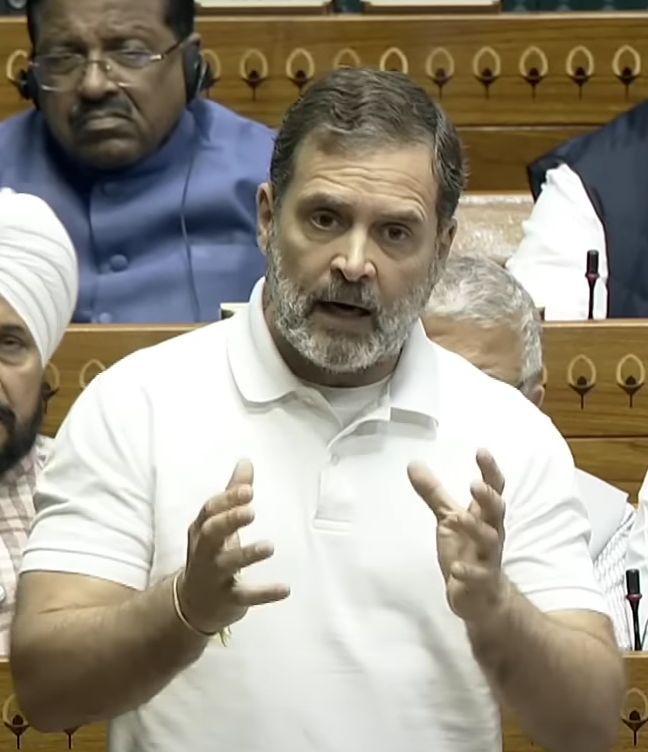Rahul Gandhi’s speech in the Lok Sabha focused on India’s economic and industrial challenges, particularly in the context of global production and employment. He outlined an alternative vision for India’s economic growth and national security.
Key Points:
- Critique of Government Policies:
- The President’s address was described as a repetitive list of government achievements rather than a strategic vision for the country’s future.
- The “Make in India” initiative was acknowledged as a good idea but labeled a failure, as India’s manufacturing sector shrank from 15.3% of GDP in 2014 to 12.6% in recent years.
- The Employment Crisis:
- Both the UPA and NDA governments have failed to provide clear solutions to unemployment.
- India has focused on consumption (services) rather than production (manufacturing, agriculture), leaving production largely in the hands of China.
- Dependence on China for Production:
- Even products labeled as “Made in India” are merely assembled in India, with key components manufactured in China.
- This dependence results in a financial outflow to China, strengthening its economy while weakening India’s production base.
- Emerging Industrial Revolution & India’s Role:
- A global transition is happening from the internal combustion engine to electric motors, batteries, solar, and AI-driven technology.
- India must seize this opportunity, similar to how it leveraged the IT revolution in the past.
- AI without data is meaningless, and currently, China controls global production data while the US dominates consumption data.
- Proposed Economic & Industrial Strategy:
- Focus on four key technologies: electric motors, batteries, optics, and AI.
- Reform the banking system to support small and medium enterprises (SMEs) in entering this new industrial revolution.
- Align foreign policy to attract investment in high-tech industries.
- National Security & Economic Strength:
- Economic strength determines military power, and China’s industrial superiority is a key reason it occupies Indian territory.
- India must reduce its reliance on Chinese technology for its defense sector.
- Caste-Based Economic Participation:
- A caste census is essential to ensure fair distribution of economic power among Dalits, OBCs, and tribals.
- The wealth and power in India are concentrated among a small elite, with major corporations and media houses not owned by OBCs, Dalits, or tribals.
- Concerns Over Electoral Integrity:
- Allegations of voter roll manipulation in Maharashtra, with 70 lakh new voters added between Lok Sabha and Vidhan Sabha elections.
- The removal of the Chief Justice from the Election Commission selection process was questioned.
- Commitment to the Constitution:
- Gandhi emphasized the importance of safeguarding India’s institutions and democratic framework.
- Criticized RSS leaders for allegedly undermining India’s independence narrative.
- Philosophical Conclusion:
- Advocated for strategic focus over scattered efforts, drawing inspiration from Indian philosophical and spiritual traditions.
- Called for clarity, truthfulness, and non-violence in governance.
Overall Message:
Rahul Gandhi proposed an alternative vision focusing on production, technological self-reliance, economic inclusivity, and electoral integrity to counter China’s dominance and ensure India’s long-term economic and national security.


Leave a Reply